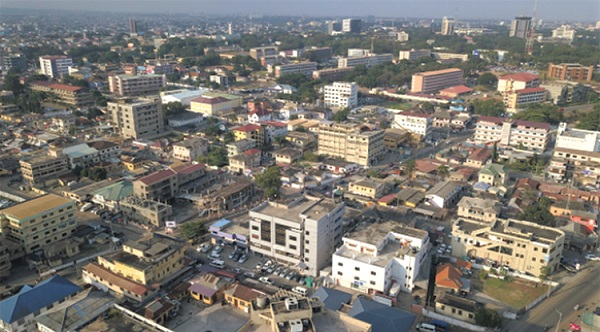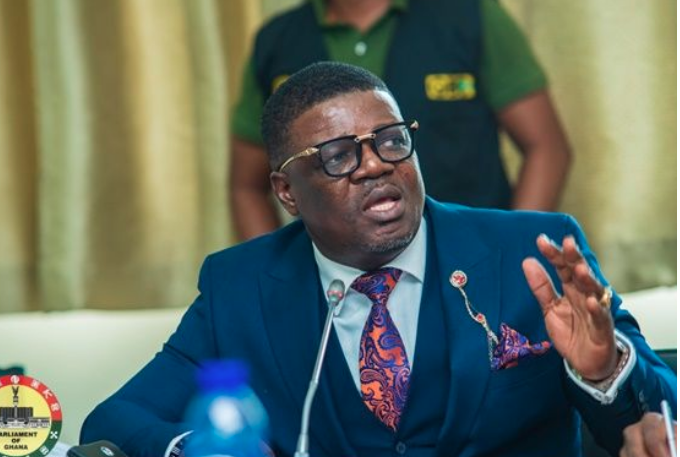There have been ongoing conversations on the need to find effective ways to generate enough revenue to promote national development.
The Finance Minister, Ken Ofori Atta, in an address on the economy on Thursday, March 24, 2022, acknowledged the implementation and collection of the revised Property Rate as one of the ways of increasing revenue mobilisation.
Three officers in charge of revenue mobilisation at their respective Metropolitan Municipal and District Assemblies (MMDAs) in separate interviews confirmed property rate to be one of the best options to generate sufficient revenue for the country.
The three officers are the Municipal Budget Officer of the Ga East Municipal Assembly; Benedicta Obeng Nyarko; the Revenue Accountant of the Ga North Municipal Assembly, Abdul Razak, and the Budget Officer of Korle Klottey Municipal Assembly, Ernest Tagoe.
Property rate is the amount charged by the MMDAs on the immovable property each year.
It is the product of the value of a property and the percentage rate charged on a property’s value.
Article 245 of the 1992 Constitution has prescribed the functions of district assemblies to include the collection of taxes, rates, duties and fees.
Such revenues are needed by the assemblies to provide basic services, such as the construction and maintenance of streets, storm drainage structures, recreational facilities and libraries.
The officers explained that although they are unable to collect the property rate of all structures within their jurisdiction, the collection so far was encouraging.
They noted that despite the challenges faced, such as inadequate logistics to assist in collecting property rates effectively, revenue mobilised over the past three years has been progressing steadily.
They indicated that more revenue would be realised if adequate logistics and funding were available.
“In setting the target, we know that we are not able to collect everything, so we set a particular target, for instance, 10 per cent of what needs to be collected, and year on year, when we set such targets we closely meet them.
“In 2019, the assembly collected GH₵1,067,506.81 as against the set target of GH₵1,386,420.
“For 2020, GH₵2,087,563.73 was collected as against the target of GH₵1,736,860, while in 2021 we collected GH₵2,476,887.74 of the target of GH₵2,615,454.42,” Mrs Nyarko from the Ga East Municipal Assembly said.
For the Korle Klottey Assembly, Mr Ernest Tagoe said property rate was one of the highest contributors to its Internally Generated Fund (IGF) and total revenue of the assembly.
In 2019, he said revenue collected was GH₵2,283,614.40 as against a target of GH₵2,330,000.00.
In 2020, GH₵2,921,741.45 was collected with a target of GH₵3,500,000.00 while in 2021 an amount of GH₵4,497,478.94 was collected with a target of GH₵5,500,000.00.
Mr Tagoe mentioned the deliberate refusal by some elite property owners to pay their property rate, as well as the difficulties in collecting property rates from poor neighbourhoods, where the property was co-owned by fourth and fifth-generational families, as some of the challenges faced.
On revenues mobilised for the Ga North Municipal Assembly, Mr Razak said an amount of GH₵386,219.07 was collected, as against the target of GH₵730,000 in 2019.
In 2020, he said GH₵328,221.93 was collected with a target of GH₵ 805,000, while in 2021, total revenue of GH₵452,416.24 was collected with a target of GH₵472,500.
For Ga North, their challenges included boundary disputes, inadequate incentives and a lack of regular training for its revenue collectors.
To him, there was a need for broader consultation and familiarisation, particularly at the grassroots level to create good mutual relations between property owners and revenue collectors.
“If the assembly should also have excess cash flow, we will be able to reach every Tom, Dick and Harry in the community.
Property rate is mandatory, it is not negotiable,” he said.
Property owners
Some property owners, who consciously pay their property rates, say they do so because it is mandatory.
“I pay my property rate. The payment is done yearly so I don’t have a problem with it, but I will advise the assemblies to use the money well to encourage people to pay.
“I believe people are not paying because they do not see any development in their communities,” Mr Francis Adu in Kwashieman said.
However, other property owners who do not pay property rates said they defaulted in payment because they did not see tangible benefits from their tax payments.
“For me, until I see some development in my community, I will not pay the property rate,” Doris Adjei, a resident of Kokomlemle said.
Mandatory
Property rate, according to the law, is mandatory, except for public worship centres, cemeteries, burial grounds, charitable or public educational institutions, public hospitals and clinics registered with the district assembly, as well as premises owned by diplomatic missions approved by the minister of foreign affairs and regional integration.
Property owners must, therefore, pay the rate.
The government must also increase funding to the assembly to ensure the effective collection of property rates.
The MMDAs must, on their part, provide the social amenities needed to encourage residents of their jurisdictions to pay their rates.







